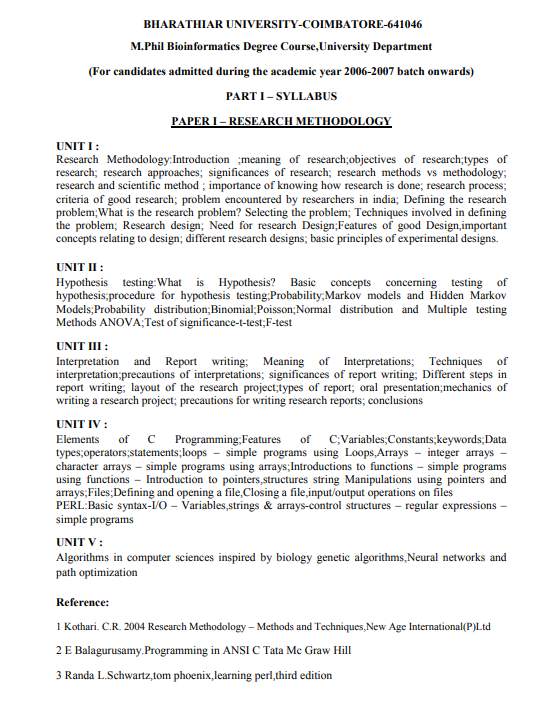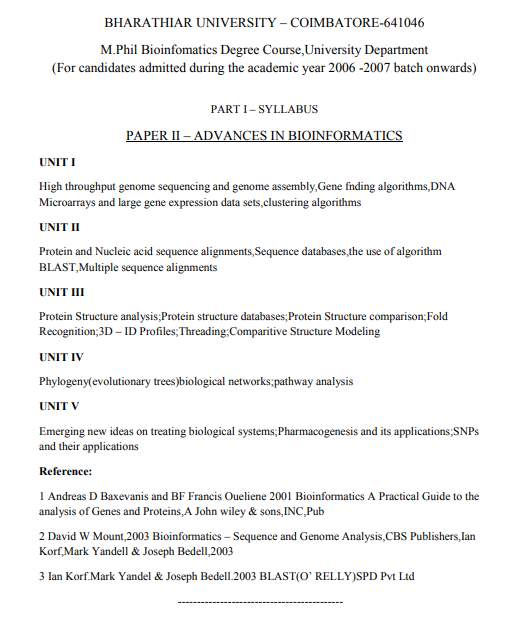The syllabus for Part I of M.Phil Bioinformatics Degree Course offered by Bharathiar University-Coimbatore on which the question paper is based is as follows:
PART I – SYLLABUS
PAPER I – RESEARCH METHODOLOGY
UNIT I :
Research Methodology: Introduction ;meaning of research; objectives of research; types of research; research approaches; significances of research; research methods vs methodology; research and scientific method ; importance of knowing how research is done; research process; criteria of good research; problem encountered by researchers in India; Defining the research problem; What is the research problem? Selecting the problem; Techniques involved in defining the problem; Research design; Need for research Design; Features of good Design, important concepts relating to design; different research designs; basic principles of experimental designs.
UNIT II :
Hypothesis testing: What is Hypothesis? Basic concepts concerning testing of
hypothesis; procedure for hypothesis testing; Probability; Markov models and Hidden Markov Models; Probability distribution; Binomial; Poisson; Normal distribution and Multiple testing Methods ANOVA; Test of significance-t-test; F-test
UNIT III :
Interpretation and Report writing; Meaning of Interpretations; Techniques of interpretation; precautions of interpretations; significances of report writing; Different steps in report writing; layout of the research project types of report; oral presentation; mechanics of writing a research project; precautions for writing research reports; conclusions
UNIT IV :
Elements of C Programming; Features of C; Variables; Constants; keywords; Data types; operators; statements; loops – simple programs using Loops, Arrays – integer arrays – character arrays – simple programs using arrays; Introductions to functions – simple programs using functions – Introduction to pointers, structures string Manipulations using pointers and arrays; Files; Defining and opening a file, Closing a file, input/output operations on files PERL: Basic syntax-I/O – Variables, strings & arrays-control structures – regular expressions – simple programs
UNIT V :
Algorithms in computer sciences inspired by biology genetic algorithms, Neural networks and path optimization
Reference:
1 Kothari. C.R. 2004 Research Methodology – Methods and Techniques, New Age International (P)Ltd
2 E Balagurusamy.Programming in ANSI C Tata Mc Graw Hill
3 Randa L. Schwartz, tom phoenix, learning perl, third edition
Syllabus Part I of M.Phil Bioinformatics Bharathiar University-Coimbatore




